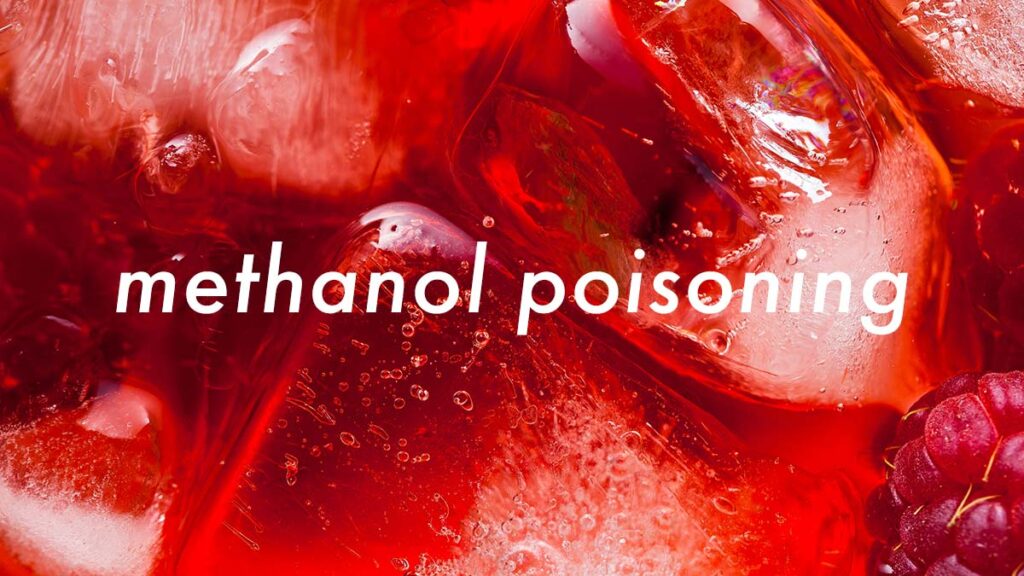Methanol poisoning is a serious and potentially fatal condition caused by the ingestion, inhalation, or dermal absorption of methanol, a toxic alcohol commonly found in industrial solvents, antifreeze, and improperly distilled alcoholic beverages. Unlike ethanol, methanol is metabolized into toxic metabolites, leading to severe metabolic acidosis and organ damage. Immediate medical intervention is crucial to prevent irreversible consequences.

Causes of Methanol Poisoning
Industrial Exposure
Methanol is widely used in industrial applications such as:
- Solvents
- Paint removers
- Windshield washer fluids
- Fuel additives
Accidental or Intentional Ingestion
Methanol poisoning often occurs due to:
- Consumption of counterfeit or improperly distilled alcoholic beverages
- Accidental ingestion of methanol-containing household products
- Intentional ingestion in cases of substance abuse or suicide attempts
Inhalation and Dermal Absorption
Methanol vapors and prolonged skin exposure can also lead to toxicity, particularly in occupational settings where safety precautions are inadequate.
Symptoms of Methanol Poisoning
Early Symptoms (Within 12 Hours)
- Headache
- Dizziness
- Nausea and vomiting
- Blurred vision
- Weakness
Progressive Symptoms (12-24 Hours)
- Severe abdominal pain
- Hyperventilation (due to metabolic acidosis)
- Vision loss or blindness (due to optic nerve damage)
- Confusion and seizures
Late-Stage Symptoms
- Coma
- Multi-organ failure
- Death if untreated
Diagnosis of Methanol Poisoning
Clinical Assessment
- History of exposure or ingestion
- Neurological and ophthalmologic examination
- Signs of metabolic acidosis
Laboratory Tests
- Serum methanol levels
- Arterial blood gas analysis (to detect metabolic acidosis)
- Anion gap calculation
- Osmolar gap determination
Treatment of Methanol Poisoning
Immediate Management
- Activated Charcoal: Limited efficacy in methanol poisoning
- Supportive Care: Intravenous fluids, electrolyte correction, and respiratory support
Antidotal Therapy
- Fomepizole (Preferred Antidote): Inhibits alcohol dehydrogenase to prevent methanol metabolism
- Ethanol Therapy: Alternative to fomepizole, competitively inhibits methanol metabolism
Enhanced Elimination
- Hemodialysis: Rapidly removes methanol and its toxic metabolites, corrects acidosis
Prevention of Methanol Poisoning
- Strict regulations on methanol-containing products
- Public awareness campaigns against counterfeit alcohol
- Proper labeling and storage of industrial chemicals
- Workplace safety measures, including protective gear
Methanol poisoning is a preventable but life-threatening condition requiring prompt recognition and treatment. Early diagnosis and intervention, particularly through fomepizole administration and hemodialysis, significantly improve patient outcomes. Public education and regulatory measures play a vital role in reducing methanol poisoning cases worldwide.

